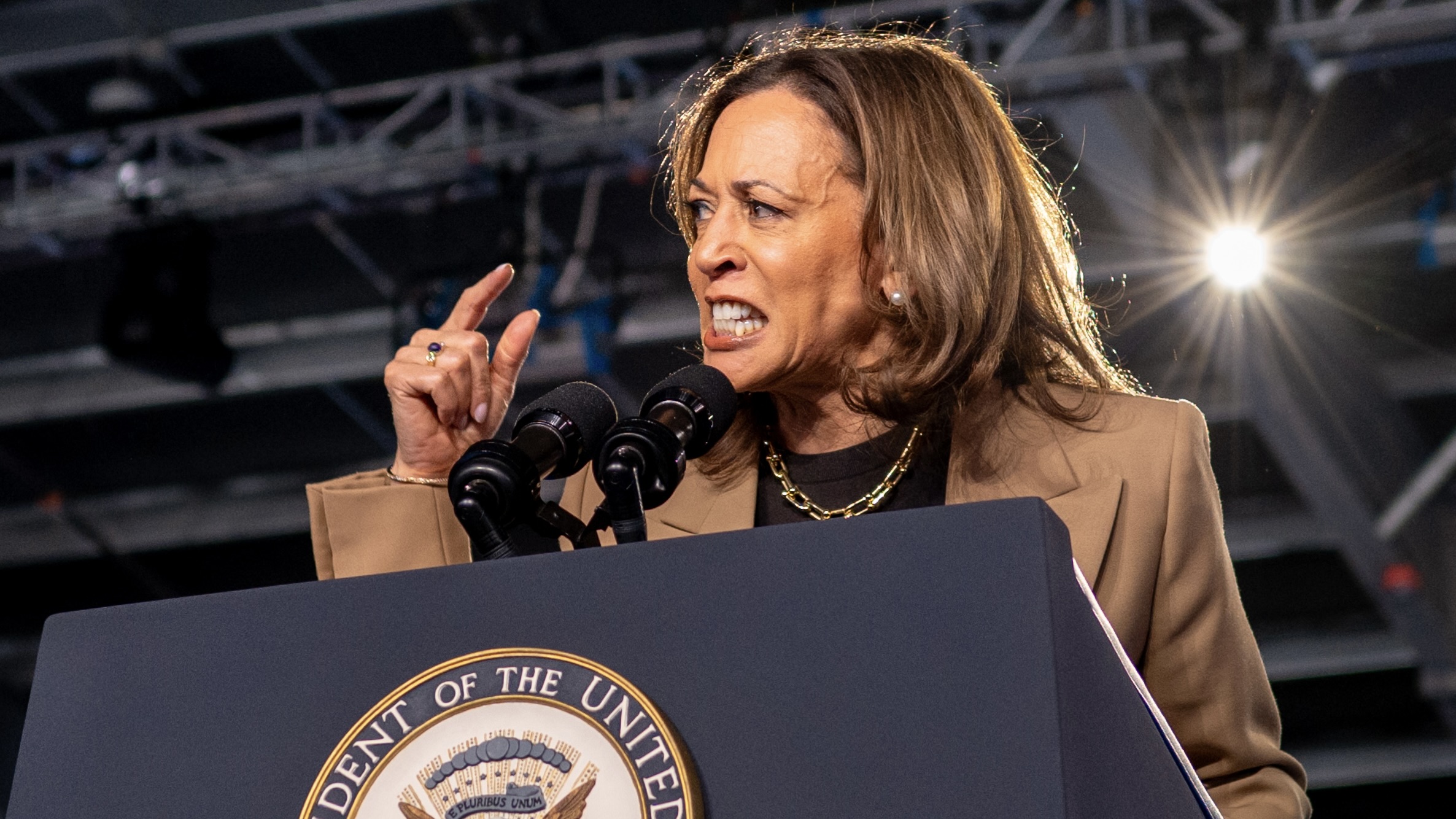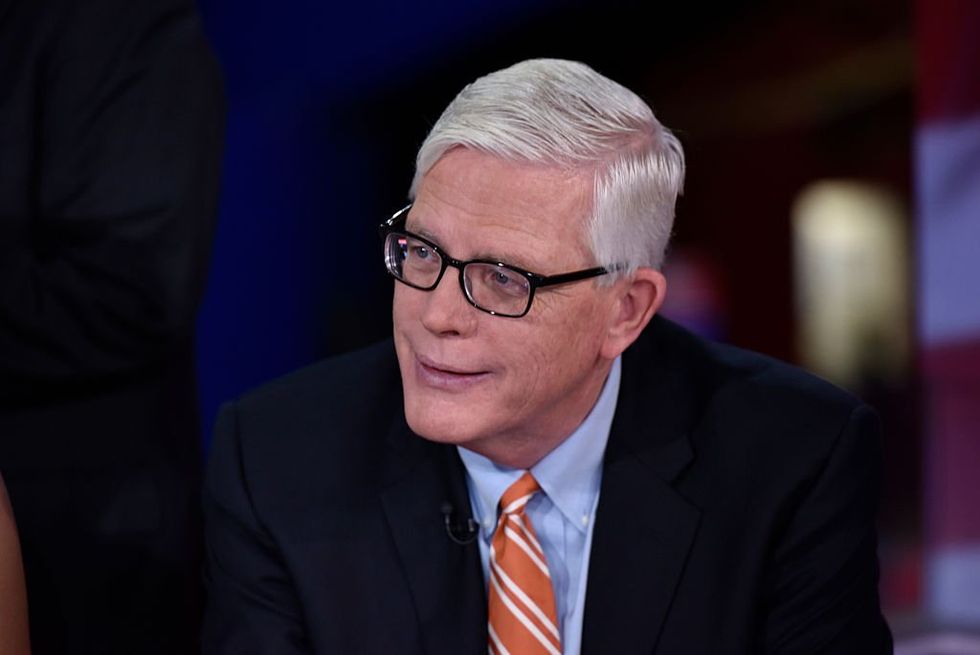Biden gets ready to exit political stage as global fires rage
November's victor will have to put them out


![]()

President Joe Biden’s legacy on national security and foreign policy will leave significant problems for a future Donald Trump or Kamala Harris administration, with no easy or quick fixes in sight.
Under Biden’s tenure, wars have broken out across the Middle East and Europe, and tensions with American adversaries such as China, Russia, North Korea and Iran — informally known as the “Axis of Evil” — have risen dramatically. Headed for the exit, Biden officials are making a series of moves to try to quell global tensions, but it likely won’t be enough to resolve glaring issues that either Trump or Harris will have to inherit in January, depending on which candidate wins the presidency.
“[Biden’s has] been a terrifically active foreign policy presidency, in the sense that there’s been a lot of fires burning in various regions of the world that the U.S. has ineffectually managed. I think that Biden’s legacy will be one of a sort of helpless giant,” Justin Logan, CATO Institute director of defense and foreign policy, told the Daily Caller News Foundation. “The next administration, whether it’s Harris or Trump, is going to have an awful lot of fires to put out.”
The Biden-Harris administration has toiled relentlessly to quell the ongoing war currently engulfing parts of the Middle East, which involves a conflict between Israel and Hamas, Hezbollah, the Houthis, Syria and Iraq-based terror networks, and Iran. The initial conflict started between Israel and Hamas — which invaded Israel on Oct. 7, 2023, and killed 1,200 people — but has since evolved into a broader regional dilemma that the administration has had little ability to control or manage.
Biden officials have put various ceasefire proposals forward but none of the actors involved have accepted them. Diplomatic attempts have also failed to ease tensions or convince Israel or Iran and its terror proxies to curtail the conflict; Israel is expected to directly strike Iran in the coming days out of retaliation for an Iranian attack in early October.
Behind closed doors, Biden officials reportedly believe there is virtually zero chance the region will calm down between now and January, a sentiment seemingly shared by some of the U.S.’ Arab partners.
“There’s no chance now of it happening,” an Arab official told The Wall Street Journal in September of a possible Israel-Hamas ceasefire. “Everyone is in a wait-and-see mode until after the election. The outcome will determine what can happen in the next administration.”
Iran is a key player in the conflict as the world’s largest state sponsor of terrorism, using its cash reserves to fund various extremist groups in the Middle East. The Biden administration has eased sanctions against Iran in the last three years in the hopes of creating some sort of diplomatic ties with Tehran; this has seemingly failed as the country is no less hostile than before Biden took office, and has raked in billions of dollars under sanctions relief which subsequently gets distributed through its terror network.
Some of these funds have been used to advance Iran’s nuclear program, which has raised serious fears among the Western world that the regime will eventually create a nuclear weapon.
So fast has Iran’s nuclear program accelerated that it would be difficult to stop at this point, even if Trump won and reinstalled his “maximum pressure” campaign against the regime.
“The most dangerous situation is probably the specter of a nuclear Iran, which has grown exponentially during the Biden term,” Victoria Coates, senior executive at the Heritage Foundation and former White House national security adviser, told the DCNF. “This development makes the Iran file considerably more challenging than it was four years ago, and by the time President Trump would take office may well be hard to fully reverse.”
Elsewhere, Biden officials are struggling to maneuver the ongoing Russia-Ukraine war, which has dragged on for two years and shown no signs of stopping. Though hundreds of thousands of lives have been lost in the fighting, neither side has made any significant territorial gains or moved the needle any closer to victory.
Billions in U.S. aid have done little more than provide Ukraine with enough defense to hold Russian forces back, and some lawmakers and critics have become worried that the Biden-Harris administration and Ukraine don’t have a strategy to end the war.
“[Russian President Vladimir Putin] saw an opportunity in Ukraine, and he saw the reluctance of the Biden administration wanting to engage and to lead on the world stage. And so I think he saw an opportunity to take Ukraine,” Morgan Viña, a former Department of Defense official and adviser to Ambassador Nikki Haley, told the DCNF.
“The U.S. has definitely supported Ukraine and made it possible for them to hold off Russia. But this war would be over had the U.S. given Ukraine the capabilities to win,” Viña said. “Because of Biden’s reluctance to give Ukraine those tools, we see this prolonged conflict.”
The two wars only account for some of the global problems to spring up under Biden’s tenure. The Biden-Harris administration’s relationship with China — which is rapidly advancing its military capabilities — has been incredibly fraught over the last three years, and the administration has failed to stop Beijing from a swath of espionage activities that have found their way inside the U.S.’ own borders.
China has its eyes locked on Taiwan, which it has threatened to bring back into the Chinese Communist Party whether peacefully or by force. Chinese forces in the Taiwan Strait have become increasingly aggressive in recent years, routinely staging invasion drills and simulating blockades around the island.
And while the Trump administration made historic progress in establishing diplomatic inroads with North Korea, those efforts have crumbled under the current administration. North Korea has gone further into isolation and continued building its already considerable nuclear stockpile in recent years.
There’s little chance all of these problems are even partially resolved between now and the time Biden leaves office, Viña told the DCNF.
“I think if anything, we’re going to see potential escalation. Biden is a lame duck president at this point, and he’s been a lame duck since Kamala Harris became the Democratic nominee,” Vina said. “He wasn’t taken seriously before by our adversaries — and many of our friends for that matter. He sure as hell isn’t being taken seriously now … I just don’t think Biden is well placed to have any sort of credibility at this point in time.”
That means it will be either on Trump or Harris to pick up the mantle and try to address some of these problems. Both Trump and Harris bring different experience to the table and different methods to navigate the conflict.
Trump’s “America First” branded style of policy would take a much different course of action than Harris’, experts told the DCNF. Trump has vowed to end the Russia-Ukraine war between the time of the election and his inauguration — relying on his relationships with Ukrainian President Volodymyr Zelenskyy and Putin to do so — help restore peace to the Middle East, impose tougher pressure on Iran, rebuild relations with North Korea and take a competitive approach to China, specifically on trade relations.
“This sorry state of affairs can be quickly righted with clear and decisive U.S. leadership, which former President Trump has demonstrated,” Coates told the DCNF, pointing to Trump’s record during his first term as president.
Logan noted that some of Trump’s goals may be difficult to achieve, such as ending the Russia-Ukraine war within a matter of months. Trump has previously said he would end the war in just 24 hours’ time.
“Trump is a little bit different because you get a lot of unfalsifiable statements. ‘The Russians would never have invaded Ukraine had I been President’ — wonderful if true, but as to why or how, the precise mechanisms don’t present themselves,” Logan said. “Trump says he would bring the conflict in Ukraine to a close within 24 hours. How, we don’t know.”
On the other side, Harris’ foreign policy experience seems minimal and she’d likely have to rely considerably on her advisers in shaping her policy platform. She has also seemingly demonstrated a lack of basic knowledge of key geopolitical issues, or at the very least, hasn’t shown that she’s familiar with them.
“I listen to Kamala Harris speak, and wind up with many more questions that I started out with,” Logan told the DCNF. “There’s an ethereal quality to her statements on foreign policy that make them inscrutable, to be honest.”
In her role as vice president, Harris has largely been in lockstep with Biden’s foreign policies, and would likely carry most of them on in her four years as president.
Given that Biden’s approach has seemingly produced few positive results — or failed outright — the multiple current global conflicts and problems would likely grow significantly worse under Harris, according to experts.
“The Biden administration is leaving behind a fractured and conflicted world in which enemies and allies alike are deeply distrustful of American intentions and reliability,” Coates told the DCNF. “Harris has not demonstrated any intention to break with this disastrous legacy, so rather than picking up the pieces, she would be more likely to break more off.”
Content created by The Daily Caller News Foundation is available without charge to any eligible news publisher that can provide a large audience. For licensing opportunities of our original content, please contact [email protected].
SUPPORT TRUTHFUL JOURNALISM. MAKE A DONATION TO THE NONPROFIT WND NEWS CENTER. THANK YOU!
What's Your Reaction?

































































































